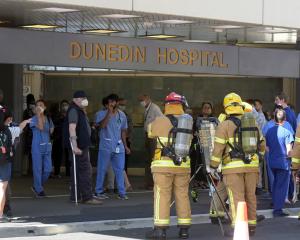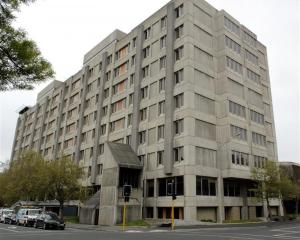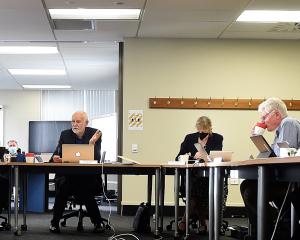Procedure changes designed to avoid adverse events for patients during strikes have been effective so far during the latest industrial action, Southern District Health Board chief medical officer (Otago) Richard Bunton says.
Dunedin Hospital's practices came under the spotlight after the 2006 action when the Health and Disability Commissioner investigated the case of a 50-year-old man whose scan was delayed during strike action until his life was in danger from a brain abscess.
In that case, while it had been established that his condition was serious and he needed an MRI head scan, because his life was not considered to be in jeopardy when he first arrived at the Emergency Department, the life-preserving service (LPS) procedure was not invoked to have a scan taken then.
Commissioner Ron Paterson said if the MRI had been performed at that time, as it would have been usually, the man's brain abscess would have been detected and neurosurgery performed immediately, preventing him from deteriorating into a perilous state in the next 24 hours.
Mr Paterson recommended the board review its strike contingency planning in the light of his report and that the minister of health also review the report and consider what action could be taken to ensure better protection of patients during strikes.
Improving decision-making processes and communication during times of industrial action were among the measures taken by the hospital.
Mr Bunton said there had been no major concerns identified with communication processes with clinicians during the action this year.
Asked if there had been any disputes over life-preserving services (LPS) this year during action by radiographers, Mr Bunton said there had been one request for further information and staff had provided clarification.
After the 2006 action, it was agreed nationally that all LPS requests would be dealt with and any disputes regarding the appropriateness of these would be dealt with after the service was provided.
A 2008 letter released to the Otago Daily Times under the Official Information Act shows that then Minister of Health David Cunliffe ruled out limiting the right to strike in hospital services.
In his response to Mr Paterson, he outlined improvements made to strike procedures since 2006.
These included the extension of the LPS provisions to include crisis intervention, therapeutic services and urgent diagnostic procedures in situations that could lead to permanent disability, as well as for the preservation of life.
He advised that consideration had been given in early 2007 to amending the provisions of the Employment Relations Act to limit the right to strike in hospital services.
However, it was not considered these provisions required amending, due to the protection afforded to the public by the LPS provisions of the Health Sector Code of Good Faith.
He said he did not intend to alter that decision "at this time".
Advertisement













